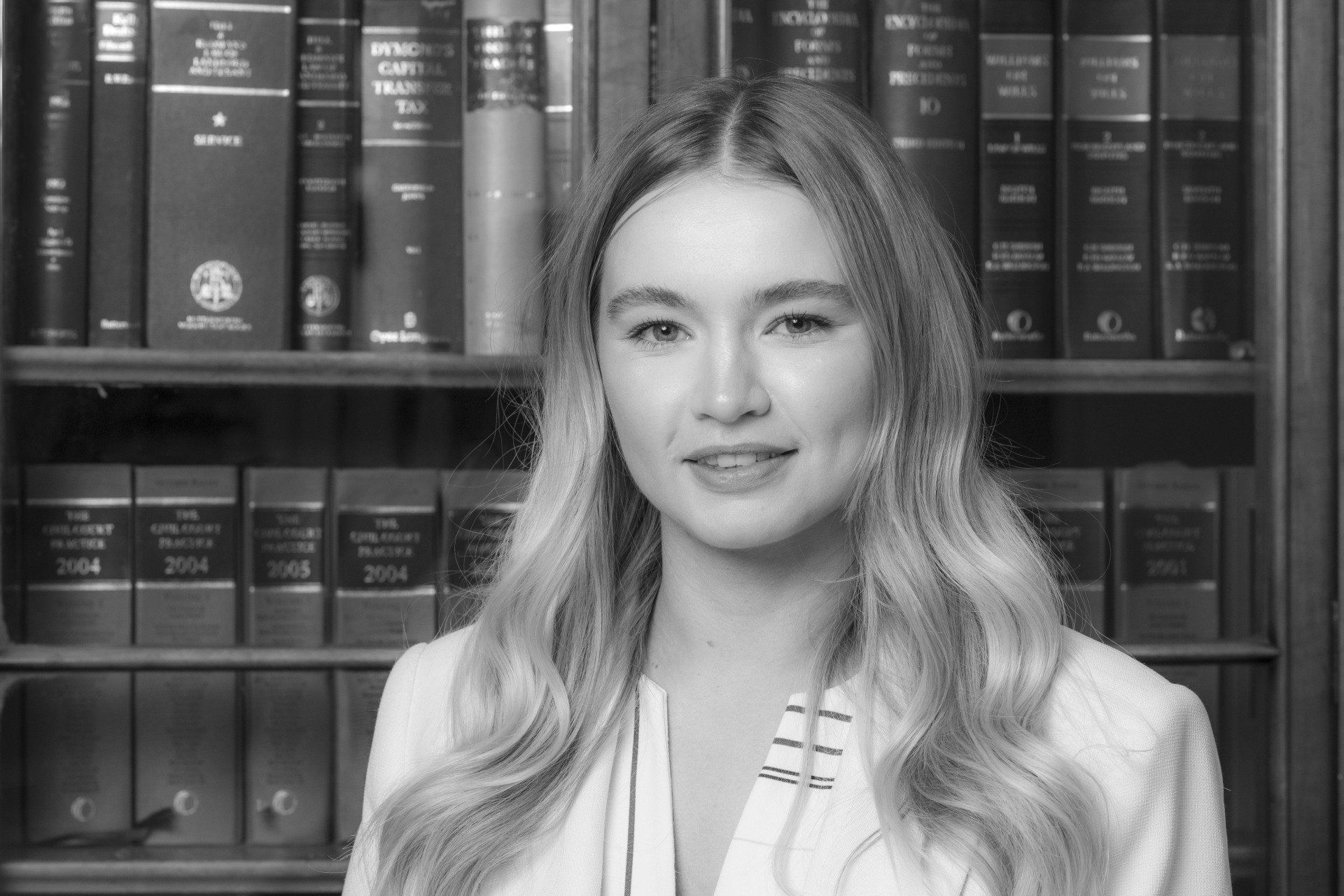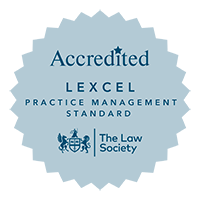Legacy
A Lasting Power of Attorney is a document that gives authority to someone to make decisions on your behalf, should you ever become unable to make them yourself. Without a Lasting Power of Attorney, your loved ones could face difficulties in dealing with your affairs if you were not able to manage them. For example, without specific legal authority, no-one can simply step in to pay bills on your behalf.
At Gibson Young Solicitors, we can advise you in respect of Lasting Powers of Attorney and how to appoint someone to represent you, should this ever be needed. We can also discuss the two main types of Lasting Power of Attorney and deal with registration of the document as necessary.
Our legacy team have extensive experience in helping clients put the right arrangements in place to ensure that their interests are safeguarded and that they will have certainty for the future. We also advise attorneys in respect of exercising their powers.
Contact our London SW15 solicitors about Lasting Powers of Attorney.
If you would like to speak to an expert Lasting Power of Attorney LPA solicitor in London SW15 or W4, ring us on 020 7924 2919, email us at reception@gibsonyoungsolicitors.com
or fill out our Contact Form.
How our London SW15 lawyers can help with Lasting Powers of Attorney.
We can go through your options with you and help you decide which type of Lasting Power of Attorney you wish to execute. You can appoint someone in respect of your property and finances and/or in respect of your health and welfare.
A property and finance Lasting Power of Attorney can be used while you still have capacity, if you wish. This can be helpful if you need someone to take action on your behalf, for example, if you need them to go to the bank for you. A health and welfare Lasting Power of Attorney can only be used once you are no longer able to make your own decisions.
Our advice to you will be clear and free of legal jargon. We are always happy to answer questions and our team are known for being friendly, approachable and understanding.
Lasting Power of Attorney FAQs
What is a Lasting Power of Attorney?
A Lasting Power of Attorney is a legal document allowing an individual, referred to as the donor, to give authority to their representative or attorney. If the time comes when the attorney needs to use the document, they are bound to act in the best interests of the donor at all times.
What types of Lasting Power of Attorney are there?
The main types of Lasting Power of Attorney, or LPA, are a property and financial affairs LPA and a health and welfare LPA. If you are a business owner, you can also consider making a business LPA.
What can an attorney do under a property and finance Lasting Power of Attorney?
You can give your attorney the power to deal with all or some of your financial affairs, as you choose. It is generally the case that a donor will give permission to their attorney to manage the following on their behalf:
• Buying or selling property
• Maintaining and insuring a property
• Paying bills, to include mortgage or rent
• Making investments on your behalf
They can also make some small cash gifts on your behalf, subject to statutory limits. You can include restrictions if you wish, for example, you could require your attorney to obtain the consent of the Court of Protection before selling your home.
What can an attorney do under a health and welfare Lasting Power of Attorney?
Under a health and welfare LPA, your attorney can make the following types of decisions:
• Where you will live
• What your day to day life will look like
• Who you will see
• What medical care you will receive
You can also include details of any medical treatments you wish to decline, to include certain life-saving treatment.
You may want to take advice from your medical practitioner on what to include and once you have signed the document, you should ideally notify both them and your close family members of its existence.
What is a business Lasting Power of Attorney?
A business Lasting Power of Attorney gives business owners the chance to put a separate attorney in place for their enterprise. A business could be in great difficulty if the proprietor was unable to deal with matters for any reason. Bills and salaries could remain unpaid, decisions might not be taken and problems could arise with supplies.
By putting a business attorney in place, you have the peace of mind of knowing that someone will be able to deal with issues as and when needed. You should ideally appoint someone who is familiar with the way your organisation works. You do not have to be incapacitated for them to act, which means that they can deal with issues on your behalf if you are overseas or temporarily unavailable.
Does a Lasting Power of Attorney need to be registered?
A Lasting Power of Attorney can be registered with the Office of the Public Guardian once it has been made, although this is not essential and you can choose to store it until it is needed.
There may be some advantages in registering it however. If there is any error in the process, you can deal with this so that the document is ready to use. It is also likely to take the Court of Protection a number of weeks to process the application.
You can nominate up to five individuals who will be notified on registration of the power of attorney, by way of a safeguard. If any of them have concerns, this gives them the opportunity to raise objections.
If a financial and property Lasting Power of Attorney is registered straight away, then the attorney can use it as soon as the registration is complete, should they need to. This can be useful if you need someone to carry out a financial transaction for you.
What happens if someone has not made a Lasting Power of Attorney and they lose mental capacity?
Once someone has lost the ability to make their own decisions or manage their own affairs, it is too late for them to make a Lasting Power of Attorney. Close family members or spouses cannot act on their behalf without legal authority, so this means that an application will need to be made to the Court of Protection for a deputyship order, appointing someone to act as a deputy.
This process can be lengthy and can leave a family in limbo while they wait for the authority to deal with matters. It is also a more expensive and complex process, requiring an assessment of capacity and the serving of notices on other individuals with an interest in the matter.
There is also more ongoing scrutiny of a deputy, who may be required to report to the Court of Protection on an annual basis.
Generally, it is far preferable for an individual to make a Lasting Power of Attorney themselves, appointing their own choice of representative in advance of any difficulties arising.
Contact our expert Lasting Power of Attorney solicitors London SW15 and W4.
At Gibson Young Solicitors in Putney and Chiswick, we offer both legal expertise and outstanding client service. We are friendly and approachable and our advice is clear and straightforward.
If you would like to speak to an expert Lasting Power of Attorney lawyer in Putney or Chiswick, ring us on 020 7924 2919, email us at reception@gibsonyoungsolicitors.com
or fill out our Contact Form. All initial enquiries are free of charge and without any obligation.
Putney Office: 1 & 2 Crescent Stables, 139 Upper Richmond Road, Putney, London SW15 2TN
Making a Will is an easy thing to put off or overlook. Yet planning your estate is important and is something everyone should do.
Our experienced team can help you plan for your family’s future in the most tax-effective way possible.
As well as drafting Wills and assisting with Inheritance Tax planning, our expert team also advises on setting up trusts, and dealing with probate and the administration of estates when someone dies.
We understand that organising the legal aspects of your personal life, such as wealth management, succession planning or capacity issues, can be daunting. Our experienced and pragmatic team will support you though every step of the process.
If you would like to speak to an expert probate & estate administration solicitor, please ring us on 020 7924 2919, email us
or fill out our Contact Form. All initial enquiries are completely free of charge and without any obligation.
For more information on how we charge for probate and estate administration please refer to our guide.
Putney Office:
1 & 2 Crescent Stables, 139 Upper Richmond Road, Putney, London SW15 2TN








